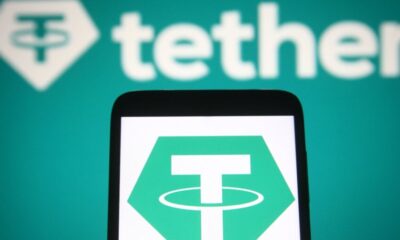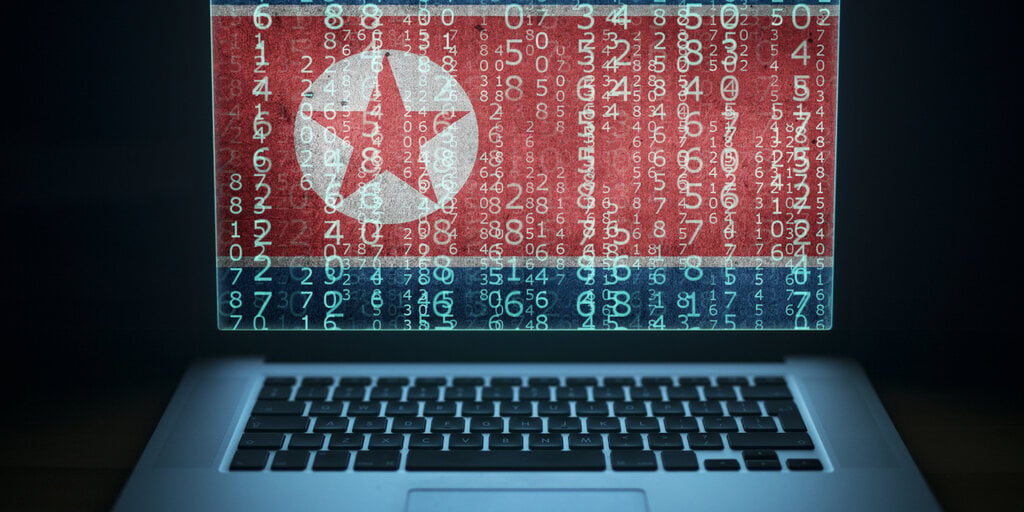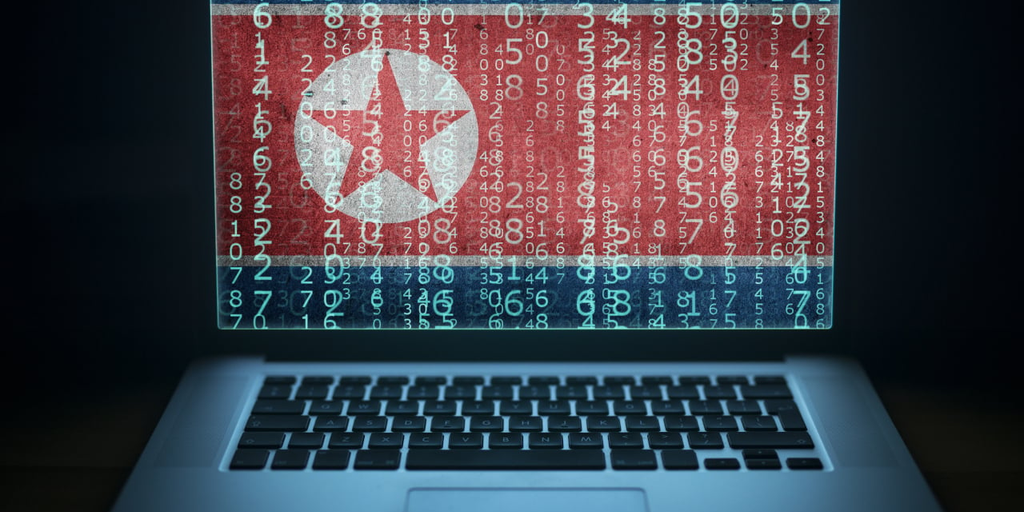Coins
These States Have Rejected Bitcoin Reserve Bills
Published
1 month agoon
By
admin

A surge of state-level Bitcoin reserve proposals across the U.S. has hit a roadblock, after multiple states rejected bills to invest public funds in the leading crypto.
Of the 50 U.S. states, over 20 have introduced or are considering legislation related to Bitcoin reserves or investments in digital assets, but the fate of many of these bills remains uncertain.
But over the past few weeks, several states—including Montana, South Dakota, North Dakota, Pennsylvania, and Wyoming—have dealt setbacks to the growing Bitcoin reserve initiative. Here’s a look at how such bills have failed thus far.
Montana
Montana’s Bitcoin reserve proposal, House Bill 429, faltered following its introduction in late January. The bill sought to allocate up to $50 million in public funds for Bitcoin, stablecoins, and precious metals.
Despite arguments from Representative Curtis Schomer, who endorsed the bill as a way to diversify state assets and potentially secure higher returns, the proposal failed in a 59-41 vote in the House of Representatives on February 21.
South Dakota
South Dakota’s HB 1202, which proposed allocating up to 10% of the state’s public funds into Bitcoin, was rejected by the House Commerce and Energy Committee in a 9-3 vote on February 24.
While Representative Logan Manhart, the bill’s sponsor, argued that Bitcoin could preserve value in inflationary environments, Matt Clark, South Dakota’s state investment officer, cautioned against the asset’s volatility.
North Dakota
North Dakota’s proposal, HB 1184, which sought to explore the feasibility of a Bitcoin reserve, failed to pass the House with a vote of 57-32.
However, that doesn’t mean the Peace Garden State has completely turned its back on crypto-related initiatives. The Legislative Assembly of North Dakota is still considering a Republican-sponsored resolution that encourages the State Treasurer and State Investment Board to pour select state funds into digital assets and precious metals, Legiscan shows.
That resolution passed a second reading in the North Dakota House and is headed to the State Senate Industry and Business Committee for further consideration, according to state government records.
Pennsylvania
Pennsylvania’s HB 2664 proposed investing up to 10% of the state’s funds in Bitcoin, but was effectively killed.
The Republican-led bill, co-sponsored by Rep. Michael Cabell and Rep. Aaron Kaufer, was first introduced last November. The legislation would have authorized the Pennsylvania State Treasurer to invest in cryptocurrencies, with public funds being poured into those digital assets using a secure custody solution, or invested in exchange-traded products that track the price of digital assets such as Bitcoin.
Wyoming
Wyoming’s bill, introduced in mid-January, was rejected by the state committee on February 6, with just one out of eight lawmakers supporting the initiative, the State of Wyoming Legislature’s records show.
The legislation called for the investment of state funds and permanent funds into Bitcoin. Under the bill, up to 3% of each of the general fund, the permanent Wyoming mineral trust fund, and the permanent land fund may be poured into the largest digital asset by market capitalization.
State and national Bitcoin reserves
The momentum behind Bitcoin reserves at the state level can be traced back to the endorsement of a national Bitcoin stockpile from U.S. President Donald Trump during his election campaign last year.
Wyoming Senator Cynthia Lummis, chair of the Senate subcommittee on digital assets, introduced a bill in July 2024 calling for the U.S. government to purchase 1 million Bitcoin over five years for a national strategic reserve, yet her state’s own Bitcoin reserve proposal has struggled to gain traction.
Moving forward
Although there’s been pushback from some states, Bitcoin reserve proposals are advancing in other regions.
Utah is making the most significant progress, with its Blockchain and Digital Innovation Amendments bill passing the revenue and taxation subcommittee in a 4-2-1 vote on February 20.
HB 230 is now just one step away from reality, allowing the state treasurer to allocate up to 5% of public funds to digital assets, with Bitcoin being the only asset meeting the $500 billion market cap requirement, making it the primary candidate for the state’s reserve asset.
Texas, known for its crypto-friendly stance, is pushing forward with two distinct Bitcoin-related proposals.
One bill would allow the state to allocate up to 1% of its general revenue fund to Bitcoin, while a second bill addresses Bitcoin donations and crypto payment conversions.
On February 25, the Oklahoma House Government Oversight Committee advanced HB 1203, the Strategic Bitcoin Reserve Act, with a 12-2 vote.
Arizona’s Senate Finance Committee advanced SB 1025, which proposes up to 10% of public funds, including pensions, to be invested in assets like Bitcoin. The bill is now pending a House vote.
With 18 bills currently pending across various states, the movement for state Bitcoin reserves remains alive and well as lawmakers continue to weigh the potential of digital assets in public finance.
Editor’s note: This story was originally published on February 27, 2025. It was last updated with additional detail on March 2.
Daily Debrief Newsletter
Start every day with the top news stories right now, plus original features, a podcast, videos and more.
Source link
You may like


Is Korea Propping Up The XRP Price? Pundit Explains What’s Happening


Crypto stocks down, IPOs punted amid tariff tumult


Financial Firm Republic Plans To Acquire Crypto and Tokenized Securities Trading Platform INX for $60,000,000


The Future Of Bitcoin Mining Is Distributed


Tether Won’t Try to Make USDT Comply With US Laws, ‘Needs’ New Stablecoin: CEO


SEC says “Covered Stablecoins” not under its jurisdiction
Coins
Bitcoin Staking Protocol Babylon Reveals BABY Token Airdrop
Published
1 day agoon
April 3, 2025By
admin

The Babylon Foundation, an entity tied to the Bitcoin staking protocol Babylon, released tokenomic details for its BABY token Thursday—and revealed an airdrop for early users.
The Foundation will provide 6% or 600 million BABY, the Babylon Genesis Network’s native governance token, to five reward groups and early supporters as part of its airdrop. The vast majority of tokens (585 million) set aside for the airdrop campaign will be provided to those who have staked Bitcoin with Babylon.
“Tokens will be directly transferred to the registered BABY address upon Babylon Genesis launch,” the Babylon Foundation posted on X (formerly Twitter). “No claims needed.”
The Early Adopters Airdrop (6% of supply) comprises 5 categories:
30M BABY – Staking participation, every Phase-1 stake is eligible
335M BABY – Base Phase-1 staking rewards
200M BABY – Bonus for Phase 1 stakes that will transition to Phase 2
30M BABY – Pioneer Pass NFT…
— Babylon Foundation (@bbn_foundation) April 3, 2025
The largest allocation, 335 million BABY tokens, is for those who participated in Babylon’s Base Phase-1 staking, the locking up of native Bitcoin tokens via Babylon which took place across multiple instances called “caps.”
The protocol launched three total caps of Bitcoin staking, the first of which was held to just 1,000 Bitcoin and led to a major spike in transaction fees as users rushed to be among the first to stake their Bitcoin ahead of anticipated rewards.
Another 200 million BABY is earmarked for users that transition their Phase-1 stakes to Phase-2. Two smaller buckets—of 30 million and 5 million BABY, respectively—will be provided to Pioneer Pass NFT holders and Github contributors.
BABY was first revealed in February, and users were able to create and register a BABY address and connect it to their Bitcoin staking wallet. At the launch of the Babylon Genesis Network, users will automatically receive their airdropped BABY tokens.
Users who have participated in Babylon staking, but have not registered their address, can still do so if they transition their stakes to Phase-2. Other social and wallet campaign airdrops for BABY are also planned by the Foundation.
Babylon Genesis is a layer-1 proof-of-stake blockchain that is secured by Bitcoin, meaning it uses Bitcoin staking to secure and provide liquidity to the network. The network will utilize a “dual-staking” model, allowing users to stake both BTC and BABY tokens.
Babylon previously raised more than $70 million to make Bitcoin the “backbone of proof-of-stake systems”—in other words, making it possible to use the leading crypto asset to help secure proof-of-stake chains like Ethereum or Solana.
Edited by Andrew Hayward
Daily Debrief Newsletter
Start every day with the top news stories right now, plus original features, a podcast, videos and more.
Source link
Coins
Alabama, Minnesota Advance Bitcoin Reserve Plans With Companion Bills
Published
3 days agoon
April 2, 2025By
admin

Bitcoin could soon find a place on state balance sheets, with Alabama and Minnesota both pressing ahead with legislative frameworks for state Bitcoin reserves.
In Minnesota, House File 2946, also called the Minnesota Bitcoin Act, introduced by Rep. B. Olson (R-MN) on Tuesday, would allow the state to invest in Bitcoin directly. Its Senate counterpart, SF 2661, was introduced earlier in March.
The identical bills seek to authorize the State Board of Investment to allocate public funds into Bitcoin, marking a direct acknowledgment of the digital asset’s long-term financial potential.
Meanwhile in Alabama, Senate Bill 283, filed this week by Sen. April Weaver (R-AL)is a companion to House Bill 482, introduced earlier in March.
Though neither bill explicitly names Bitcoin, the legislation limits eligibility to digital assets with a market capitalization of at least $750 billion.
Currently, only Bitcoin meets that threshold, effectively making it the sole qualifying asset under the proposed framework.
If the proposals pass, they would take effect on October 1, 2025 in Alabama and January 1, 2026 in Minnesota.
Both states are embracing a legislative tactic commonly used to fast-track approval: introducing identical bills in both chambers.
HF 2946/SF 2661 would allow the state to not only invest in Bitcoin but also accept it for tax payments and government transactions.
The bill amends more than a dozen statutes to incorporate crypto, including tax codes, pension plans, and investment rules.
The Alabama legislation also outlines digital assets must be held directly by the treasurer, by a qualified custodian, or via exchange-traded products, and cannot exceed 10% of any state fund.
U.S. state Bitcoin reserve proposals
The proposals follow a wider trend of state-level efforts across the U.S. to explore the world’s largest crypto as a strategic reserve asset.
While some states, including Wyoming, Montana, and Pennsylvania, have recently paused or withdrawn their Bitcoin reserve plans, the momentum remains strong elsewhere.
South Carolina recently introduced a bill to allow its treasurer to allocate up to 10% of certain state funds into digital assets—starting with Bitcoin.
Oklahoma’s House Bill 1203, which allows for crypto asset reserves, passed overwhelmingly and is pending Senate review. Texas passed Senate Bill 21 to establish a Bitcoin strategic reserve and is awaiting gubernatorial approval.
Arizona and Utah have introduced their own frameworks, although Utah’s reserve language was dropped during revisions.
Bitcoin reserve tracker Bitcoin Law’s data shows that 47 state-level Bitcoin reserve bills have been introduced in 26 states, 41 of which are currently live.
Sentiment around the passing of a state Bitcoin reserve proposal appears to have turned negative, however. Users of MYRIAD, the decentralized prediction market launched by Decrypt’s parent company DASTAN, overwhelmingly predicted that no state would implement such a reserve, in a market that closed at the end of March.
Daily Debrief Newsletter
Start every day with the top news stories right now, plus original features, a podcast, videos and more.
Source link
Coins
There’s More to North Korea’s Hacking Ops Than Just Lazarus Group: Paradigm
Published
4 days agoon
April 1, 2025By
admin

In February, North Korean hackers broke headlines with what is now regarded as the largest single hack in crypto history.
The Lazarus Group stole at least $1.4 billion from Bybit and later funneled those funds to crypto mixers.
“Someone had pulled off the biggest hack in [crypto] history, and we had a front-row seat,” Samczsun, Research Partner at Paradigm, recalled in a blog post.
The researcher said they witnessed the theft in real-time and collaborated with Bybit to confirm the unauthorized access.
Samczsun was working with SEAL 911, an emergency response unit affiliated with the Security Alliance, a nonprofit organization dedicated to securing decentralized systems.
But these attacks aren’t all just about the Lazarus Group. There’s more to North Korea’s cyber offensives than previously thought.
There’s a misconception about how to “classify and name” the group’s operations.
While the term “Lazarus Group” is “colloquially acceptable,” discussing how the DPRK (Democratic People’s Republic of Korea) runs its cyber operations on the offensive needs more rigor, Samczsun claimed.
Lazarus Group has become the preferred term by the media when describing DPRK cyberactivity. Cybersecurity researchers “created more precise designations” to show which ones are working on specific activities, they added.
A hacking bureau
The DPRK’s hacking ecosystem operates under the Reconnaissance General Bureau (RGB), which houses several distinct groups: AppleJeus, APT38, DangerousPassword, and TraderTraito
These groups operate with specific targeting methodologies and technical capabilities.
TraderTraitor, identified as the most sophisticated DPRK actor targeting the crypto industry, focuses on exchanges with large reserves and employs advanced techniques, successfully compromising Axie Infinity through fake job offers and manipulating WazirX.
AppleJeus specializes in complex supply chain attacks, including the 2023 3CX hack that potentially affected 12 million users.
Dangerous Password, meanwhile, conducts lower-end social engineering through phishing emails and malicious messaging on platforms like Telegram.
Another subgroup, APT38, spun out of Lazarus in 2016 and focused on financial crimes. It first targeted traditional banks before shifting attention to crypto platforms.
In 2018, the OFAC first mentioned “North Korean IT workers,” which in 2023 were identified by researchers as “Contagious Interview” and “Wagemole,” operating through schemes where the threat actors either pose as recruiters or attempt to get hired by target companies.
There’s still hope
While the DPRK has shown its ability to deploy zero-day attacks, there have been “no recorded or known incidents” of it deploying directly against the crypto industry, Samczsun said.
The researcher urged crypto companies to implement basic security practices such as least privilege access, two-factor authentication, and device segregation. If preventive measures fail, connecting with security groups like SEAL 911 and the FBI’s DPRK unit would also be helpful.
“DPRK hackers are an ever-growing threat against our industry, and we can’t defeat an enemy that we don’t know or understand,” Samczsun wrote.
Edited by Sebastian Sinclair
Daily Debrief Newsletter
Start every day with the top news stories right now, plus original features, a podcast, videos and more.
Source link

Is Korea Propping Up The XRP Price? Pundit Explains What’s Happening

Crypto stocks down, IPOs punted amid tariff tumult

Financial Firm Republic Plans To Acquire Crypto and Tokenized Securities Trading Platform INX for $60,000,000

The Future Of Bitcoin Mining Is Distributed

Tether Won’t Try to Make USDT Comply With US Laws, ‘Needs’ New Stablecoin: CEO

SEC says “Covered Stablecoins” not under its jurisdiction
Circle’s IPO Filing Tests Crypto Market Confidence After Trump’s Tariff Shock

$90K Breakout Ahead as BTC Decouples from US stocks after China’s Tariffs

Toncoin Takes A Hit With 12% Correction After Failing To Break $4.34, More Pain?

Bitcoin sentiment falls to 2023 low, but ‘risk on’ environment may emerge to spark BTC price rally

Crypto Trader Says Dogecoin Is at a Critical ‘Make-or-Break’ Level, Updates Outlook on Solana and Avalanche

Bitcoin Covenants: CHECKSIGFROMSTACK (BIP 348)

Illinois State Senator’s Bill Seeks to Claw Back $163 Million Lost to Crypto Fraud

Here’s why Bitcoin, altcoins, and the stock market continued falling on Friday

Bitcoin Falls Back to $83K, XRP, SOL, DOGE Surrender Gains as China Announces 34% Tariffs on All U.S. Goods

Arthur Hayes, Murad’s Prediction For Meme Coins, AI & DeFi Coins For 2025

Expert Sees Bitcoin Dipping To $50K While Bullish Signs Persist

Aptos Leverages Chainlink To Enhance Scalability and Data Access

Bitcoin Could Rally to $80,000 on the Eve of US Elections

Sonic Now ‘Golden Standard’ of Layer-2s After Scaling Transactions to 16,000+ per Second, Says Andre Cronje

Institutional Investors Go All In on Crypto as 57% Plan to Boost Allocations as Bull Run Heats Up, Sygnum Survey Reveals

Crypto’s Big Trump Gamble Is Risky

Ripple-SEC Case Ends, But These 3 Rivals Could Jump 500x

Has The Bitcoin Price Already Peaked?

A16z-backed Espresso announces mainnet launch of core product

Xmas Altcoin Rally Insights by BNM Agent I

Blockchain groups challenge new broker reporting rule

The Future of Bitcoin: Scaling, Institutional Adoption, and Strategic Reserves with Rich Rines

Trump’s Coin Is About As Revolutionary As OneCoin

Is $200,000 a Realistic Bitcoin Price Target for This Cycle?
Trending

 24/7 Cryptocurrency News5 months ago
24/7 Cryptocurrency News5 months agoArthur Hayes, Murad’s Prediction For Meme Coins, AI & DeFi Coins For 2025

 Bitcoin3 months ago
Bitcoin3 months agoExpert Sees Bitcoin Dipping To $50K While Bullish Signs Persist

 24/7 Cryptocurrency News3 months ago
24/7 Cryptocurrency News3 months agoAptos Leverages Chainlink To Enhance Scalability and Data Access

 Bitcoin5 months ago
Bitcoin5 months agoBitcoin Could Rally to $80,000 on the Eve of US Elections

 Altcoins2 months ago
Altcoins2 months agoSonic Now ‘Golden Standard’ of Layer-2s After Scaling Transactions to 16,000+ per Second, Says Andre Cronje

 Bitcoin5 months ago
Bitcoin5 months agoInstitutional Investors Go All In on Crypto as 57% Plan to Boost Allocations as Bull Run Heats Up, Sygnum Survey Reveals

 Opinion5 months ago
Opinion5 months agoCrypto’s Big Trump Gamble Is Risky

 Price analysis5 months ago
Price analysis5 months agoRipple-SEC Case Ends, But These 3 Rivals Could Jump 500x


